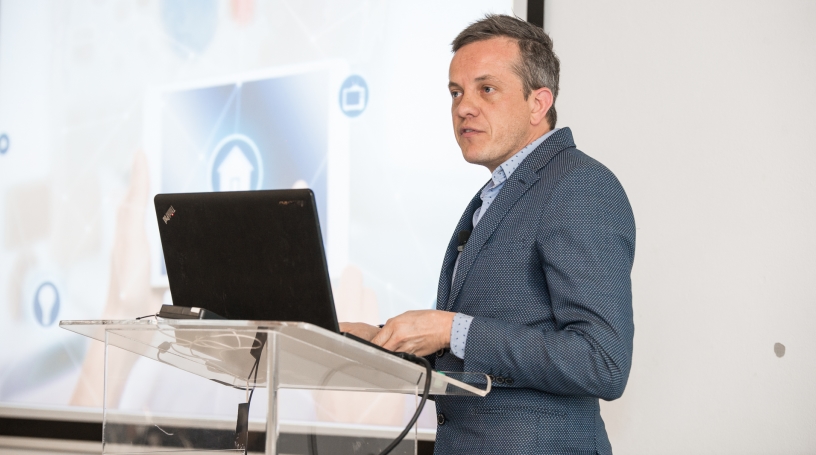
Anton Cabral, partner and managing executive at LRMG Performance Agency Digital.
SA can learn a lot from Society 5.0 – a Japanese concept centred on developing the population to become a super smart society.
This is the word from Anton Cabral, partner and managing executive at LRMG Performance Agency Digital, speaking at the ITWeb Digital Economy 2017 summit yesterday.
The underlying idea behind Society 5.0 is that the rapid development of information technology now allows the combination of cyber space – the information – with the physical space – the real world. The combination of both are Cyber Physical Systems, objects of the real world enhanced and combined with information.
This concept, Cabral explained, is expected to bring about a major shift in society.
"Society 5.0 is transforming every aspect of the Japanese society in the same way as industry 4.0 is digitally transforming the manufacturing sector and how they're doing this is that they've created the full national digital transformation strategy and influencing levels of philosophy in their culture. We would be wise to keep an eye on the Japanese because they have realised that although technology is very important, the key is people," he explained
In illustrating this theory, Cabral made reference to well-known behavioural science expert and work management author, Daniel H Pink.
"Daniel Pink says in creating an ideal performance ecosystem, we need to look at three critical issues to intrinsically motivate the workforce to perform better – these are autonomy; purpose and mastery. Digital can play a significant role in providing online interactive visual workplace based on agile human-centred programme design as opposed to what we have in our organisations today which is traditional enterprise resource planning solutions which are feature-heavy and often have complex compliance-driven processes," he pointed out.
We are increasingly living in a world where workers are more autonomous and they respond more favourably when managed by outcome then the process, added Cabral. Discussing purpose, Cabral explained more and more employees want to be associated with organisations which are purpose-driven.
"Digital provides a wonderful means of engaging employees around critical issues by creating social cohesion and creating dynamic feedback groups to keep a cognitive narrative. This can be achieved by creating community digital platforms which have Facebook-like features, and even use something as simple as gamification, where you drive engagement and discussion around topics."
The third element, mastery, he explained, is the employees' desire to be the best at what they do.
"In an ideal performance ecosystem, we need to provide mechanisms that can display performance data which gives people the ability to assess their performance and provide them with digital means to close any gap and increase performance through a myriad of digital learning tools or even learning objects.
"If we can accept that as an ideal performance ecosystem, once we are successful in driving and creating these optimal digital ecosystems we will inspire workplaces that are customer-centric, exploratory, distributive, and agile," concluded Cabral.

